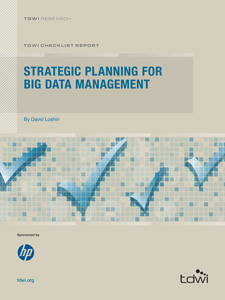
May 9, 2012
Many major organizations are considering alternative methods of analytics suited to massive amounts of data acquired through different channels, in different formats, and streaming at various rates. Fortunately, there is a ray of hope that technologies grouped under "big data" can provide a new way of gaining insights. Types of analysis that were not feasible 5–10 years ago for gaining insights through the intersection of traditional structured data sets with unstructured data (often focusing on social media) are considered mainstream today.
The rush to embrace big data as the new source of actionable knowledge may seem revolutionary, so it would be wise to recall the issues that emerged in previous instances of innovative technologies being rapidly brought into production. In some cases, the need to quickly mainstream technology may have led to sidestepping existing organizational best practices and oversight, creating point solutions and "islands of data" that don’t scale or fit into the enterprise.
In fact, technology adoption follows similar cycles where new methods, tools, and algorithms are introduced in ways that are not completely aligned with either the corporate strategy or culture. This highlights the importance of allowing agility when trying innovative techniques, while ensuring that proper due diligence can guarantee that there is a proper value proposition and that the design and development are fully integrated within the organization’s project governance, information technology governance, and information governance frameworks.
This TDWI Checklist Report provides grounding for developing a strategic business intelligence (BI) plan for agility when adopting innovative data management and utilization techniques, while retaining a line of sight to corporate mission and corresponding business objectives. A strategic BI plan guides the solicitation and documentation of business requirements and helps business data consumers articulate the value proposition, get alignment across business functions, prioritize activities, and build an implementation plan that will guide current development and allow for flexibility in future development.